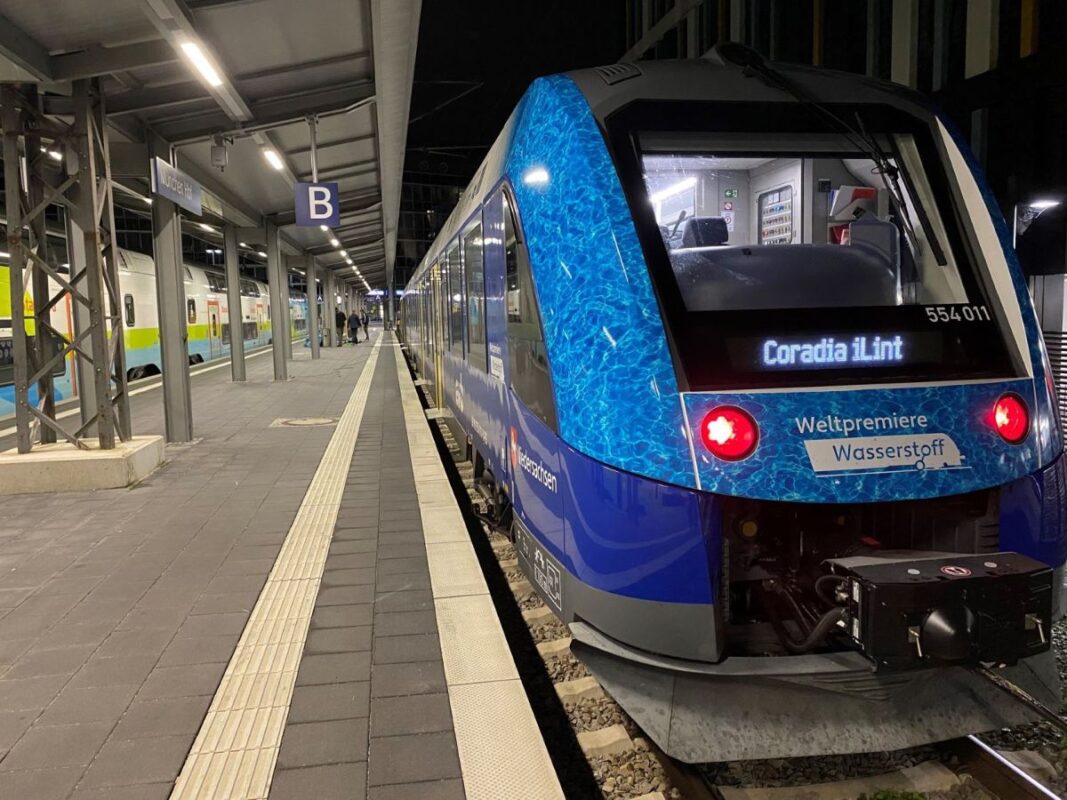Alstom’s interest in the railway connection between Heraklion and Kastelli Airport was expressed by the CEO of the company in Greece, Stavros Vlahos. In the context of a meeting with journalists, Mr. Vlachos noted that there is strong interest in the development of a tram-train line that will cover the 40km distance from the city to the new International Airport, which is expected to be operational in 2026.
As he said, the project could be carried out with funds from the Recovery Fund, which finances fixed-track projects. The company is also positive about the Innovation Proposals that have been instituted and wants to contribute to the creation of infrastructure in the country.
In a recent conference that was organized on this specific topic in Crete, the interest of the island’s agencies in the creation of a means of fixed orbit that would connect the international airport of Kastelli with the major urban centers of Crete emerged. The construction of the new international airport and the consequent increase in the number of visitors to the island, had been argued to initially include the railway connection, in addition to VOAK which is in the initial phase of its implementation.
In the context of sustainable development and mobility in general, it is something that interests Alstom, and as Mr. Vlachos said, projects such as the tram-train in Heraklion are interesting. The idea of the tram-train is supported, it is a solution that could possibly be considered and implemented as it suits regional cities like Heraklion. A similar solution has been put on the table for Nicosia. At the same time, it has been supported by agencies and local governments that the creation of a railway line will help in the future expansion of the medium and the rest of the large urban areas of the island.
Interest in tenders
The head of Alstom in Greece expressed the company’s interest in several tenders currently underway. As he mentioned on Alstom‘s “radar”, it is the project for the West Attica Suburban (by OSE), the operation and maintenance project of the Thessaloniki Metro, while it is also likely to participate in the tender for the seven two-way trains for the airport route. The last two projects will be run by Attiko Metro.
However, Alstom is very interested in the tender for the supply of 15 hydrogen trains announced by the Ministry of Infrastructure and Transport. “We are very interested in this competition, we are pioneers in this technology, we have already supplied cities in Germany, soon you will see such trains in Milan and also in France,” he said specifically. However, as he noted, he knows that due to funding from the Recovery Fund, the margins are narrow and he expressed his hope that the tender will start soon.
Mr. Vlachos mentioned that the company participates in the six tenders for the 4 billion euro railway projects of ERGOSE promoted by the Ministry of Infrastructure and Transport. For these projects, he even noted that they are of great interest as they are expected to be financed by European funds. At the same time, Alstom is running together with AVAX the projects for the signaling of the Thessaloniki-Idomeni line and the electrification of Paleofarsalos-Kalambaka.
Reference was also made to the Athens-Thessaloniki-Promahonas signaling contract for which he stated that several sections have been delivered by the joint venture with TOMI and that some sections remain which he believes will be completed and delivered soon.
Participation in Line 4
Mr. Vlachos also stated his enthusiasm for Alstom’s participation in the scheme that undertook the construction of the new line 4 Alsos Veikou-Goudis (with GHELLA and AVAX). As he said, this is a project that is done with the most modern techniques and the contribution of BIM. As for the two TBMs, he emphasized, if they do not encounter any difficulties in the subsoil (that is, mainly to find a different subsoil from the one for which they have been prepared) then the opening can be done in a short time, i.e. within schedule.
As he said, the first TBM is being assembled at the Katehaki construction site, while the issue with the archaeological excavations at the Veikou construction site has also been completed and the second TBM is also underway. Mr. Vlachos mentioned that these are very modern machines that were specially made for line 4 in Germany.
At the same time, Alstom will supply the trains of the new line which will be driverless, will have smart technologies and will have a gate system at the platforms (corresponding to those of the Thessaloniki Metro).
Brain gain
However, he gave particular importance to the fact of the return of many of the company’s engineers who had left abroad during the crisis. As he said, Alstom has already proceeded with brain gain by covering any gaps created by the increase in its activity in our country.
Alstom, as its head in Greece explained, due to its multinational nature, was able to keep the staff it had and move them to other areas when there was a shortage of items in our country. “We strongly believe in the capabilities of Greek engineers, they are, if not the best, among the best in Europe. The big bet in brain gain is to be able to bring them to Greece – which is also something most people want – with salaries that are attractive, that’s what we implement,” he said specifically.
ΜΗΝ ΞΕΧΑΣΕΤΕ
- Ακολουθήστε το ypodomes.com στο Google News και μάθετε πρώτοι όλες τις ειδήσεις για τις υποδομές στην Ελλάδα
- Δείτε την εταιρική μας σελίδα στο LinkedIn
- Εγγραφείτε στο Newsletter μας, για να λαμβάνετε κάθε εβδομάδα στο email σας τα δημοφιλή άρθρα μας
